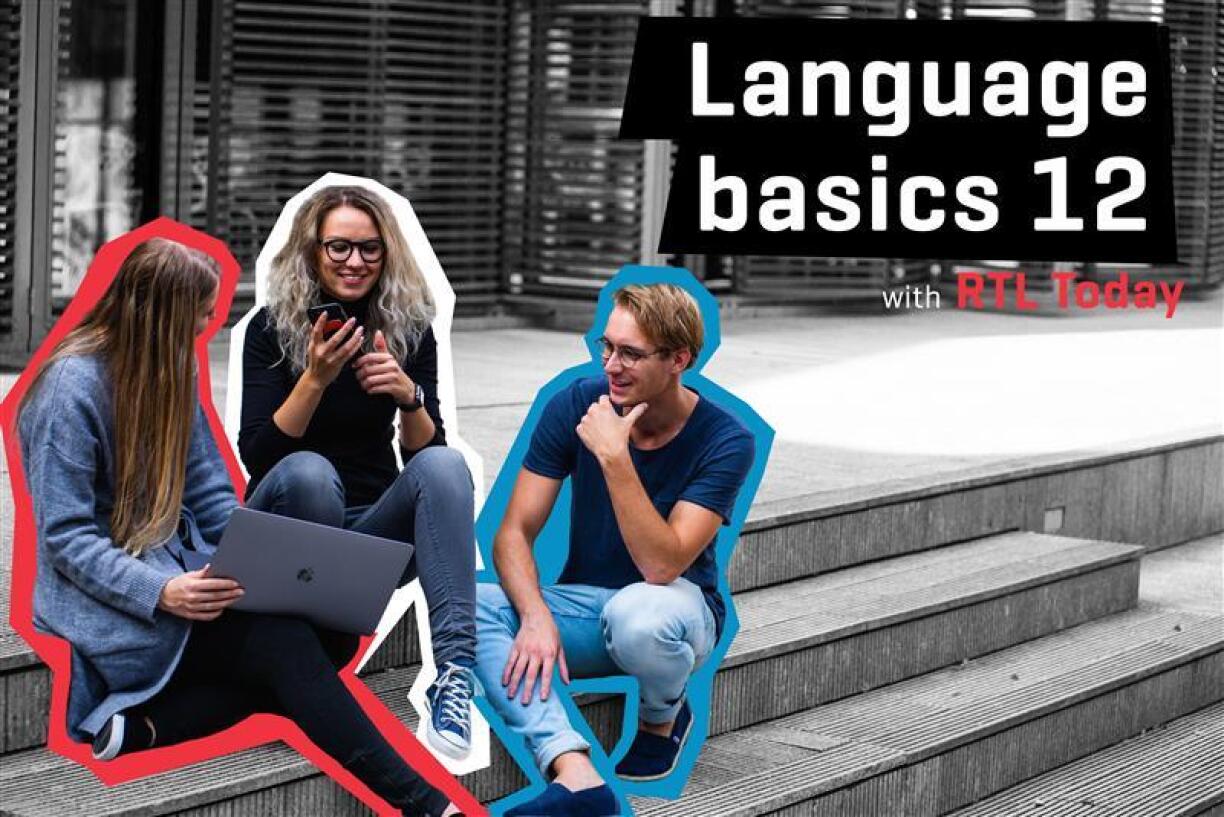
In this edition of our Language Basics, we’re truly making the Luxembourgish language our own – it’s all about possessive adjectives and expressing ownership!
Well, well, well, if it isn’t our favourite Luxembourgish student! Wëllkomm zeréck to Language Basics, your weekly dose of grammar and orthography, also known as ‘the boring part of languages’. But all jokes aside, big up to you for continuing to take an interest in these more theoretical lessons as well!
In this lesson, we’re talking about ownership. Particularly, how to express ownership in Luxembourgish. Now, we can all agree that the ‘possessive s’ in English is a really elegant and simple solution. Unfortunately, Luxembourgish has a slightly more cumbersome structure to express the same idea…
Do you remember grammatical gender from Language Basics 2? This is a concept we once again need to keep in mind today because, contrary to English, we can’t just say ‘my dog’, ‘my watch’, and ‘my house’. In Luxembourgish, we have to choose the correct possessive adjective depending on the grammatical gender of the object it refers to. Thus, we would say mäin Hond, meng Auer, and mäin Haus. Here is a basic overview of the different possessives:
masculine female neuter English
mäi(n) meng mäi(n) my
däi(n) deng däi(n) your
säi(n)/hir seng/hir säi(n)/hir his/her
eise(n) eis eist our
äre(n) är äert your
hire(n) hir hiert their
If there is no need to name anyone specifically, this is a straightforward affair and basically just a matter of choosing the correct possessive:
eise Gaart → our Garden (de Gaart is masculine)
deng Kaz → your (singular) cat (d’Kaz is feminine)
äert Haus → your (plural) house (d’Haus is neuter)
However, if you want to be more specific and use a name, for instance, things get a little bit more… peculiar:
dem Julien säi Buttik → Julien’s shop / the shop of Julien
If we were to translate the Luxembourgish sentence literally, it would read something like this: ‘the Julien his shop’ (remember that first names are generally always preceded by the definite article in Luxembourgish: Ech sinn de Jean-Paul à I am (the) Jean-Paul)
Let’s look at a few more examples:
der Mamm hir Buermaschinn → mother’s drill (‘the mother her drill’)
dem Fernando säi Buch → Fernando’s book (‘the Fernando his book’)
de Polizisten hiren Auto → the police officers’ car (‘the police officers their car’)
Grammatically speaking, what is happening here is that the owner is in the dative case (der, dem, de are definite pronouns in the dative case) followed by the correct possessive adjective. If you’re confused, don’t worry about it. This structure can be a bit of a challenge but as with most grammar points, the best way to learn it is by regularly and repeatedly reading in and listening to Luxembourgish.
Before you leave, don’t forget to have a look at our extensive vocabulary list for the core lesson:
Places to stay on holiday
the hotel → den Hotel
the one-star / two-star / three-star / four-star / five-star hotel → de(n) ee-Stär / zwee-Stären / dräi-Stären / véier-Stären / fënnef-Stären Hotel
the hotel room → d’Hotelszëmmer
the reception → d’Receptioun
the youth hostel → d’Jugendherberg
the dormitory → den Dortoir
the campsite → de Camping
the caravan / camper → d’Rulott
the tent → d’Zelt
Other holiday related vocab
the palm tree → d’Palm
the beach -→ d’Plage
the ocean → d’Mier
the sun lounger → de Ligestull
the hammock → d’Hängematt
the sun screen → d’Sonnecrème
the air mattress → d’Loftmatrass
the guided tour → d’Visite guidée
the guide → de / d’ Guide (French pronounciation is standard but English pronounciation will also be understood)
the mountains → d’Bierger
the cruise → d’Croisière
the cruise ship → d’Croisièresschëff
to hike → wanderen
to go on a hike → wandere goen
to rent a bike / car → ee Vëlo / een Auto lounen
to go for a swim in the ocean → An d’Mier schwamme goen
Language Basics 1 – Counting, countries, and d’, de, den
Language Basics 2 – Grammatical gender
Language Basics 3 – The difference between ‘op’ and ‘bei’
Language Basics 4 – Counting beyond 100
Language Basics 5 – Ordinal numbers
Language Basics 6 – Formal and informal speech
Language Basics 7 – Regular and irregular verbs
Language Basics 8 – The verb ‘to be’ (sinn)
Language Basics 9 – The verb ‘to have’ (hunn)
Language Basics 10 – The past tense(s)
Language Basics 11 – The future tense (that doesn’t really exist)